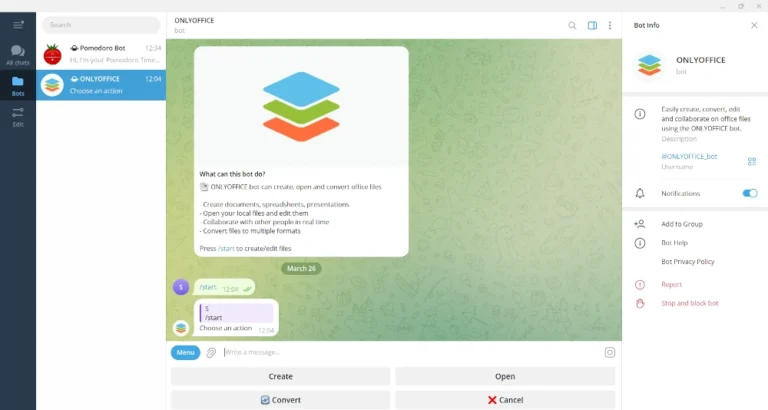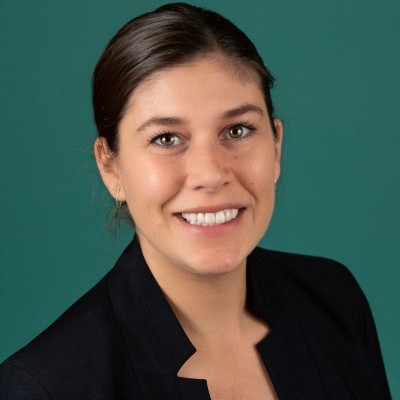Ultimately, we see this initiative as a contribution to the future of Drupal. As Dries Buytaert outlined in his vision for long-term growth, one key obstacle is: “Make Drupal easy to evaluate and adopt.” We believe Drupal Open University is one way to help remove that obstacle, by meeting new learners where they are and welcoming them into our community with open arms.
Material worked on
Drupal is so much more than just code, it’s a thriving ecosystem powered by one of the most dedicated open source communities in the world. But while that community remains strong, its average age is rising, and many young developers never encounter Drupal at all when starting to build their skills. In recent years, we’ve made significant progress in lowering the barrier to entry: today, it’s even possible to build a Drupal site using AI, without writing a single line of code.
Within the community, there’s a strong desire to teach, guide, and share knowledge. If we can reach students early in their learning journey and spark their interest in Drupal, we have a unique opportunity to foster the next generation of Drupal developers. And by teaching Drupal, we also introduce them to our vibrant and welcoming community, helping them experience the value of contribution from the very beginning.
What is the Drupal Open University Initiative?
We’re also preparing a community presentation to share the current state of the initiative, including a Q&A sessions. This is your chance to get involved, ask questions, and help shape the future of Drupal education.
Why This Matters
Sources
We’re mapping out which schools and universities are already teaching Drupal, and building case studies to inspire others. We’re also exploring how students experience Drupal, and how we can create dedicated spaces for them within our community, on Drupal.org, at camps and cons, or through student programs. Think internship matchmaking, guest lectures, or introductory presentations hosted by local agencies. The goal: make Drupal education visible, accessible, and desirable in the academic world.
Material worked on
Who’s involved?
We explore different angles to make Drupal education relevant across disciplines: from comprehensive Drupal development tracks to specialized topics like AI, headless Drupal with React, or mastering PHP-based web applications using Drupal. In parallel, we’ve also discovered new formats to reach broader audiences, such as Drupal in a Day. Our first official session took place in May at Drupaljam in the Netherlands, gathering valuable feedback. The second is being organized at DrupalCon Vienna with 90+ students attending and a Drupal in a Day for Drupalcon Chicago is in the works.
For Drupal Open University to succeed, it must align with the broader ambitions of the Drupal community, especially those focused on growth and inclusivity. That means working alongside existing initiatives, supporting our project leadership, and coordinating with other community efforts in education, contribution, and outreach.
The Four Pillars of the Initiative
1. Courses and Teachers
Our first focus is to find, build, open source, and expand the existing Drupal curriculum. This includes everything from introductory courses to fully-fledged academic modules worth 6 ECTS points or more. One of our key goals is to empower Drupal enthusiasts, whether they’re developers or educators, to teach Drupal in a university or high school setting. To do that, we provide resources, templates, and mentorship on both content and delivery.
Material worked on
Our community has always excelled at sharing advanced knowledge, especially at camps and conferences. But what if we created more space for beginners at those same events? We believe every camp should include beginner-friendly tracks, clearly designed to welcome newcomers, students, and self-taught developers. We can help camps develop and deliver those tracks, including guidance on how to reach the right audience and what topics to cover.
- 6 ECTS academic course
- Acquia’s Drupal Course
- Drupal in a Day program
- Open Source Book of starting with Drupal “All Things Drupal”
- Guidelines for starter tracks at camps
- Onboarding material from Drupal Companies
2. Universities and Schools
Theme’s we are working on
“What if we could open source the teaching materials themselves, and teach others how to teach Drupal?”
André Angelantoni (aangel), Ben Mullins (bnjmnm), Darren oh (darren-oh), Yan Zhang (designfitsu), Hilmar Hallbjörnsson (drupalviking), Esmeralda Tijhoff (esmoves), Fran Wyllie (franwyllie), Gayatri Tandon (gayatritandon), Nico Grienauer (grienauer), Guzman Bellon (guzmanb), Wouter Immerzeel (immoreel), Jean-Paul Vosmeer (jpvos), Karos Abdulqadir, Kwasi Afreh, Lenny Moskalyk (lenny moskalyk), Martin Anderson-Clutz (mandclu), Asim Mehta (metasim), Jordan Thompson (nord102), Rachel Lawson (rachel_norfolk), Salim Lakhani (salimlakhani), Jasper van Schelven (sch11en), Eric Wheeler (sikofitt), Soumya V (soumyavbhat), Norah Medlin (teknorah), Michael Anello (ultimike)
- Drupal in a Day
- Drupal courses
- List with universities and schools
- Invites to Universities and schools
- ‘Friends of Drupal’
3. Community
André Angelantoni (aangel), Ben Mullins (bnjmnm), Darren oh (darren-oh), Yan Zhang (designfitsu), Hilmar Hallbjörnsson (drupalviking), Esmeralda Tijhoff (esmoves), Fran Wyllie (franwyllie), Gayatri Tandon (gayatritandon), Nico Grienauer (grienauer), Guzman Bellon (guzmanb), Wouter Immerzeel (immoreel), Jean-Paul Vosmeer (jpvos), Karos Abdulqadir, Kwasi Afreh, Lenny Moskalyk (lenny moskalyk), Martin Anderson-Clutz (mandclu), Asim Mehta (metasim), Jordan Thompson (nord102), Rachel Lawson (rachel_norfolk), Salim Lakhani (salimlakhani), Jasper van Schelven (sch11en), Eric Wheeler (sikofitt), Soumya V (soumyavbhat), Norah Medlin (teknorah), Michael Anello (ultimike)
- How to bring people into the community program
- How to contribute to the courses
- Organized a Drupal-in-a-day at Drupaljam
- ‘Wat can camp organizers do for beginners’
4. The Initiative
André Angelantoni (aangel), Ben Mullins (bnjmnm), Darren oh (darren-oh), Yan Zhang (designfitsu), Hilmar Hallbjörnsson (drupalviking), Esmeralda Tijhoff (esmoves), Fran Wyllie (franwyllie), Gayatri Tandon (gayatritandon), Nico Grienauer (grienauer), Guzman Bellon (guzmanb), Wouter Immerzeel (immoreel), Jean-Paul Vosmeer (jpvos), Karos Abdulqadir, Kwasi Afreh, Lenny Moskalyk (lenny moskalyk), Martin Anderson-Clutz (mandclu), Asim Mehta (metasim), Jordan Thompson (nord102), Rachel Lawson (rachel_norfolk), Salim Lakhani (salimlakhani), Jasper van Schelven (sch11en), Eric Wheeler (sikofitt), Soumya V (soumyavbhat), Norah Medlin (teknorah), Michael Anello (ultimike)
What’s Next
Drupal has a long-standing history in the academic world, many universities and schools already use it in their digital infrastructure. So why not teach it, too? We believe Drupal should be among the course options available in IT and digital curricula. Many agencies and Drupal professionals already have connections in educational environments. By leveraging these warm relationships, we can introduce formal Drupal courses in places where there’s already familiarity with the platform.
“I thought I heard that we won’t need junior devs now that we have generative AI?”
- Present the courses – share the why, the structure, and the vision behind it.
- Reach out – connect with universities, schools, Drupal camps, and user groups.
- Inspire others – get people excited and engaged in spreading Drupal education.
- Create and share – develop a practical “how to” for organizing a course or session.
- Build and open source – make the courses freely available and community-driven.
- Teach and organize – support those who want to teach or host a course.
- Evaluate and improve – gather feedback and evolve the material.
- Show and tell – highlight success stories and encourage others to join.
The Drupal Open University Initiative is a community-driven effort focused on bringing Drupal into academic and other (higher) education environments. Our mission is to introduce students and aspiring developers to the power of Drupal, and to help cultivate the next generation of contributors. Through comprehensive, open-source-based courses, we aim to equip students, educators, and guest lecturers with the knowledge and tools needed to engage with Drupal—and the broader open source ecosystem. Together, we’re shaping a future where Drupal continues to grow through the energy of new talent and an increasingly vibrant community.
Final Thoughts
But it doesn’t stop at camps. How do we find newcomers? How do we make them feel welcome and embed them into user groups and local meetups? Local associations and user groups can play a vital role in bridging the gap between schools, agencies, events, and education. With their support, we can make Drupal easier to access, easier to love, and easier to stay involved in.
Our next steps:
I have tried to find everyone actively mentioned on our Drupal.org project or bi-weekly notes, please let me know when you are missing from this list.
We’re actively seeking collaboration with key stakeholders: educators, agency leaders, community organizers, and Drupal Association members. The more we align, the faster we can move. This is not just a curriculum, it’s a movement. A shared opportunity to help Drupal grow by helping others learn.





